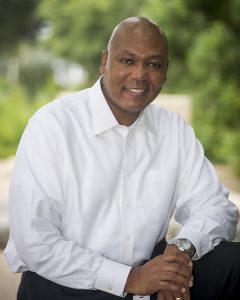On March 9, the Texas Master Naturalist Program, in cooperation with Texas A&M Agrilife Extension, began the monthly webinar series “Be the Change.” The first presentation, “Birdability,” focused on birding as an outdoor activity available to all, regardless of their physical abilities. The second, “The End of Outreach: Recognizing Unmet Conservation Audiences,” looked at diversity in conservation organizations. It was attended by SMGA Outreach Committee Members Susan Hanson, Lance Jones, and Monique Tschurr. The one-hour presentation is available here on YouTube.

Speaker for the April 20 webinar was David Buggs, Chief Diversity and Inclusion Officer for Texas Parks and Wildlife Department.
More About “The End of Outreach: Recognizing Unmet Conservation Audiences”
“The conservation community has come to realize that broadening the audience of people who care about our Natural Resources is important to the relevance, support for, and sustainability of, our ecosystems. Yet, outreach programs have long been a staple of conservation organizations for recruiting new users and creating interest in the outdoors. In recent years, the landscape of our population has become more diverse and more urban. And while the broad support for conservation has increased, active conservation supporters have decreased and remained dominated by a mostly white and predominately male constituency. How do we create a paradigm shift to increase the support for conservation without forcing assimilation and without losing current supporters at the same time?”
The next webinar, titled “From Awareness to Allyship: An intro to Black Outside, Inc and engaging BIPOC communities,” will take place on May 18, with Alex Bailey of San Antonio-based Black Outside presenting. To register for this free event, click here.
Excerpts from Bugg’s Presentation:
- “Be comfortable being in a position where you’re not in control.”
- “It might be a good practice, but is it a best practice for you?”
- “You have to work on the recruitment piece but you also have to work on the retention piece.”
- “You’ve got to start with your “why.” If it’s not personal, you’re not going to do it. It has to be personal so that you not only do it but do it well.”
- “Just put the invitation out there—not saying here’s what we want you to do, but the invitation of “come tell us what you think about it.”
- “Be who you are, but be honest. If there’s something you know, say that you don’t know it.”
- “What we all can be is respectful, recognizing that we come from different backgrounds with different perspectives and that’s okay.”
- “Find that third space that you do agree on. Don’t dwell on the stuff that you disagree on. Let’s stay there and see how we can move on.”
- “Don’t try to solve all discrimination issues—just focus on “how do we develop relationships.”
- “It’s not about numbers, head count, it’s about relationships. How do I develop a relationship with somebody outside my particular group so I can grow and I can learn?”
[gdlr_button href=”https://smgreenbelt.org/wp-content/uploads/2021/05/Resources-shared-by-David-Buggs.pdf” target=”new” size=”medium” background=”#22594D” color=”#ffffff”]Resources shared by David Buggs [/gdlr_button]
[gdlr_button href=”https://smgreenbelt.org/wp-content/uploads/2021/05/Cultural-Agility-Outline.pdf” target=”new” size=”medium” background=”#22594D” color=”#ffffff” border_color=”#999999″]Cultural Agility Outline[/gdlr_button]
